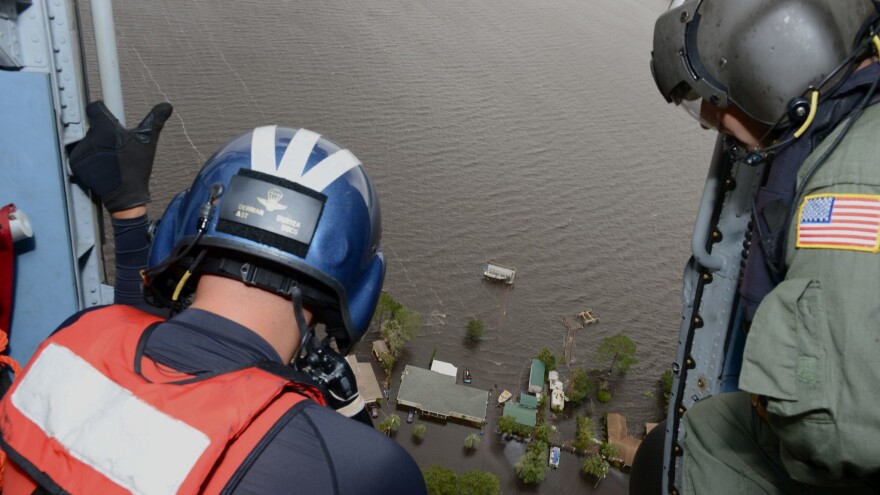FEMA will reimburse the city of Jacksonville more than $21 million for debris removal as a result of Hurricane Irma two years ago. That was just part of the cost of removing blockages like downed trees from public insfrastucture like roadways and power lines.
City Chief Administrative Officer Brian Hughes said the city has had several requests for reimbursement in the queue after Northeast Florida saw historic flooding that year.
“Sometimes, you know, there's frustration with how quickly — or not — the process is, but we have a team of experts in our Emergency Operations Center who deal with storm reimbursements. They work with our accounting folks, and we've had a very high level of success getting money back,” Hughes told WJCT News in an interview.
The total city damage estimate for Hurricane Irma is $77.8 million. The percentage the city has been reimbursed by FEMA is currently 2.5%, according to Director of Public Affairs Nikki Kimbleton. The $21.5 million is currently in the state portion of the reimbursement process. When it’s approved by the state and then disbursed, the city’s reimbursement rate for Hurricane Irma-related costs will increase to approximately 30%.
“The city is continuing to work with FEMA and the State to ensure maximum reimbursement damages from Hurricane Irma,” Kimbleton said in an email to WJCT News.
Hughes said Jacksonville has also been reimbursed in recent years for beach renourishment and water damage to city property.
“We had water go into a storage facility that the city had parking meters in, and the parking meters were destroyed,” he said. “So basically, anything that the city can demonstrate to FEMA is a direct impact of the storm is something we can petition for reimbursement for.”
He said even though the city felt minimal impacts of this year’s Hurricane Dorian, it is still seeking FEMA reimbursement for staff overtime and other costs associated with the Emergency Operations Center, which was activated as the storm approached the Florida coast and then brushed past on its way to the Carolinas.
Hughes said the up-front costs for storm response come from the city’s emergency reserves.
“We have reserves for the very purpose. If we have a non-existent storm season or a lucky miss like Dorian, we're in better financial shape because of it,” he said. “But we're prepared either way.”
Overall, federal funding for response and infrastructure repair projects in Florida as a result of Hurricane Irma has topped $1 billion, according to FEMA.
One of the other awards was $11.6 million to Clay Electric Cooperative toward repairing damaged infrastructure, including more than 600 broken power poles and 530 destroyed transformers.
Contact Jessica Palombo at 904-358-6315, jpalombo@wjct.org or on Twitter at @JessicaPubRadio.
Corrected: An earlier version of this story quoted Hughes as saying the city has recouped between 80% and 90% of Irma-related costs. In reality, he was referring to the percentage of claims certified for reimbursement that had been paid. So, of the costs approved for reimbursement, most have been paid. However, the vast majority of Irma-related costs, 97.5%, have not been reimbursed as of today. We regret the error.






